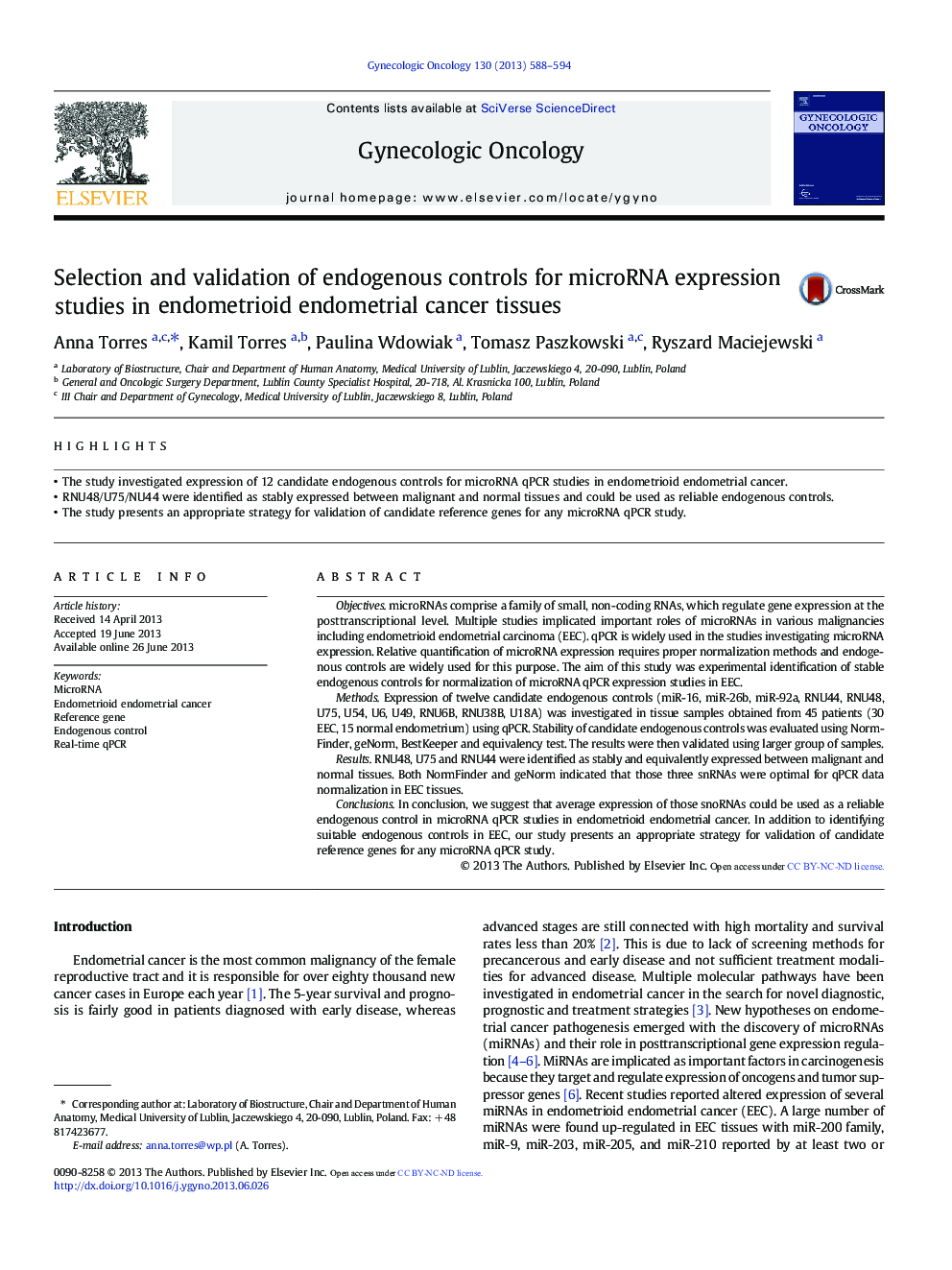| Article ID | Journal | Published Year | Pages | File Type |
|---|---|---|---|---|
| 6184532 | Gynecologic Oncology | 2013 | 7 Pages |
â¢The study investigated expression of 12 candidate endogenous controls for microRNA qPCR studies in endometrioid endometrial cancer.â¢RNU48/U75/NU44 were identified as stably expressed between malignant and normal tissues and could be used as reliable endogenous controls.â¢The study presents an appropriate strategy for validation of candidate reference genes for any microRNA qPCR study.
ObjectivesmicroRNAs comprise a family of small, non-coding RNAs, which regulate gene expression at the posttranscriptional level. Multiple studies implicated important roles of microRNAs in various malignancies including endometrioid endometrial carcinoma (EEC). qPCR is widely used in the studies investigating microRNA expression. Relative quantification of microRNA expression requires proper normalization methods and endogenous controls are widely used for this purpose. The aim of this study was experimental identification of stable endogenous controls for normalization of microRNA qPCR expression studies in EEC.MethodsExpression of twelve candidate endogenous controls (miR-16, miR-26b, miR-92a, RNU44, RNU48, U75, U54, U6, U49, RNU6B, RNU38B, U18A) was investigated in tissue samples obtained from 45 patients (30 EEC, 15 normal endometrium) using qPCR. Stability of candidate endogenous controls was evaluated using NormFinder, geNorm, BestKeeper and equivalency test. The results were then validated using larger group of samples.ResultsRNU48, U75 and RNU44 were identified as stably and equivalently expressed between malignant and normal tissues. Both NormFinder and geNorm indicated that those three snRNAs were optimal for qPCR data normalization in EEC tissues.ConclusionsIn conclusion, we suggest that average expression of those snoRNAs could be used as a reliable endogenous control in microRNA qPCR studies in endometrioid endometrial cancer. In addition to identifying suitable endogenous controls in EEC, our study presents an appropriate strategy for validation of candidate reference genes for any microRNA qPCR study.
